Search Results
Search
Filter results:
Advanced Filters
Your search returned 77 Solutions
-
Reviewing and Planning Individual Supported Living Arrangements
Based on two research phases, the Curtin University in 2017 produced a manual for individual supported living. The manual outlines critical themes and defines attributes to determine the quality of ISL arrangements. These can be scored against specific indicators with an accompanying review scoring booklet.
Curtin University, School of Occupational Therapy and Social Work, Individual Supported Living, Australia -
Demonstrating supported decision-making to change national guardianship laws
Bizchut supports people with intellectual and psychosocial disabilities as well as autism to retain control over important life decisions, with the assistance of trained professionals and volunteers. From 2014 to 2018, approximately 2,300 individuals have received training and 50 have received supported decision-making services.
BIZCHUT - Israel Human Rights Center for People with Disabilities, Israel -
Individual Supported Living in Australia
Beginning in 2008, the first two stages of this project have developed a descriptive framework of ISL and then operationalized that framework into a set of guidelines. The third stage of the project will explore how high quality ISL arrangements contribute to social and economic participation and relationships.
Curtin University, School of Occupational Therapy and Social Work, Australia -
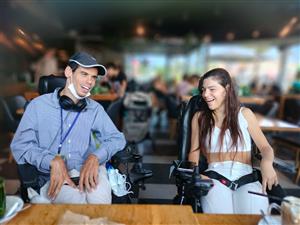
Supported housing for persons with complex disabilities
JDC Israel Unlimited’s ‘Expanded Supported Housing’ programme supports adults with severe disabilities aged 21–55 to live independently. The services include help finding an apartment, actualizing rights, budgeting, cultivating autonomy, and building independent life skills as well as ongoing support.
JDC Israel - Israel Unlimited, Expanded Supported Housing, Israel -
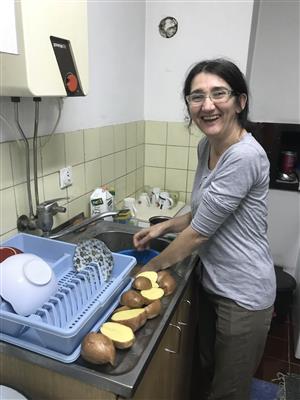
Person centred assistance and accommodation in communal housing
"Supported Living in the Community" places people with intellectual disabilities in shared apartments and supports them individually. Following a pilot between 2005 and 2008, the programme has since grown to a long-term project with 39 adults living in 12 apartments across the city of Novi Sad. Nine of them previously resided in institutions.
School for Elementary and Secondary Education - Milan Petrovic, Serbia -
MOBILE, an all-round support program
MOBILE is a network of support and assistance for persons with disabilities living out of institutions, including parents. Costs for assisted living are in most cases covered by the regional authorities. In 2015 MOBILE supported 195 people, including 13 families with parents who had intellectual disabilities and their 25 children.
Mobile - Independent Living of Disabled People e.V., Germany -
A multifunctional hub towards the open labour market
The Living Link employment model includes job analysis, job matching, interview support, placement, co-worker training, and advocacy, as well as the recommendation of assistive devices and the provision of career planning. In 2015 alone, approximately 50 people were hired in various forms of employment.
Living Link, South Africa -
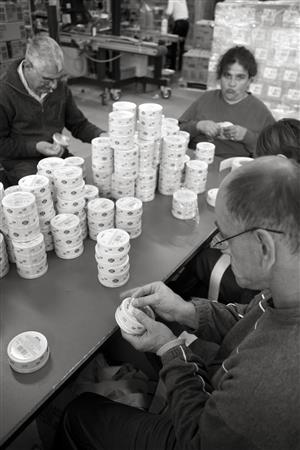
Living alone with individualized support
API developed models of community-based services, such as "organized housing" and specialized foster family care, to enable children and adults with intellectual disabilities to move from large residential institutions to a life in the community. In 2003, "organised housing" was introduced by law as a new type of service.
Association for Promoting Inclusion, Croatia -
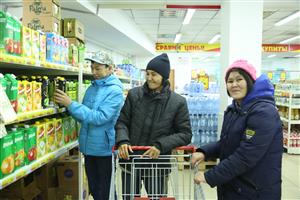
A Home, a Cafe and Employment to Promote Deinstitutionalization
In 2016, the Psychoanalytic Association set up a training café to employ ten people with psychosocial disabilities who had previously lived in closed institutions. As of 2018, the supportive independent living (SIL) programme oversees six group homes, two cafés, and 20 employed beneficiaries, all of whom now live on their own.
Psychoanalytic Association, SIL programme, Kazakhstan -
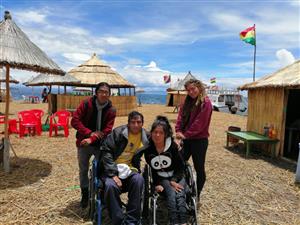
Advanced life-skills training for wheelchair users
In 2012 the Association of People with Disabilities in Bolivia launched ‘Nueva Esperanza’, a programme that teaches life skills to people with physical disabilities, especially wheelchair users. In 2017 the local practice was recognized nationwide and was included in a new labour law. As of 2022 there were 25 beneficiaries.
Nueva Esperanza Association of People with Physical Disabilities, Programa Vida Independiente (Independent Living Programme), Bolivia